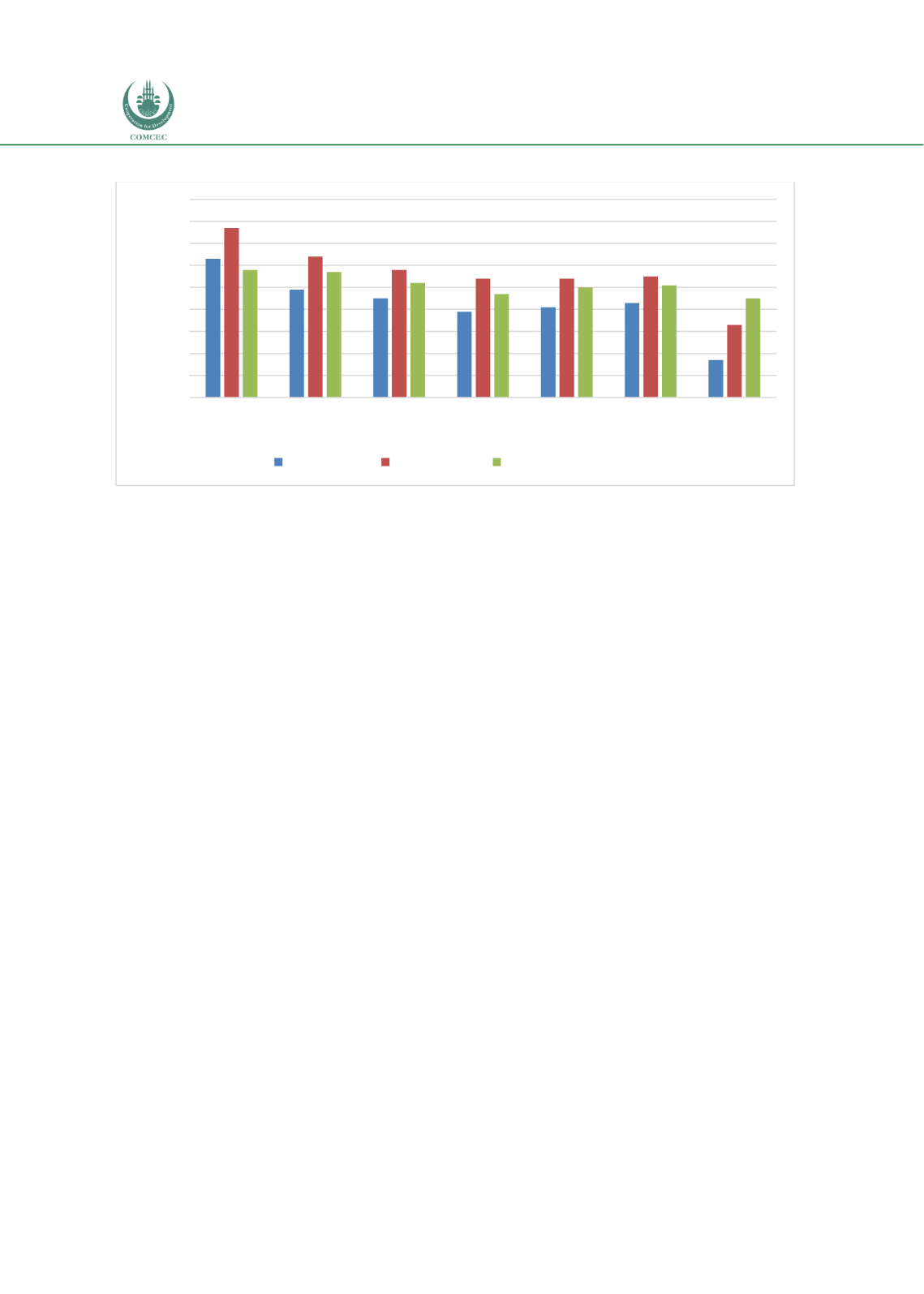

Infrastructure Financing through Islamic
Finance in the Islamic Countries
146
Chart 4.5. 3: Procurement Regime of PPPs: Sudan (0-100 Highest)
Source: World Bank (2018f)
4.5.4.1.
Laws and Regulation Supporting Islamic Finance
The whole financial sector of Sudan is Islamic. Thus, the legal and regulatory framework is
highly supportive of Islamic finance and the banking industry. Different laws have been
codified to support the Islamic financial industry. The bank of Sudan Act 2002 amended 2002
and 2006 define the main role and objectives of CBOS as being to regulate and supervise banks
with full adherence to Islamic Shari'ah principles (BOS Act, 2012). The Banking Business Act
2003 (BBA 2003) stipulates the rules and bank licenses, and it states the minimum capital,
reserves, provisions, etc. It defines the accounting and disclosure. It authorizes CBOS to inspect
banks and financial institutions. The BBA 2003 founded the Higher Shari’ah Supervisory Board
(HSSB) as the higher body that monitors the implementation of Shari’ah Standards.
While the insurance system in Sudan was completely transformed to the Islamic system in
1992, the legal framework was formalized for the sector with the enactment of the Insurance
and Takaful Act 2003 (IT Act 2003). In the IT Act 2003, Takaful distinguishes between life
insurance and general insurance, (IMF, TWB, 2005). There are other laws indirectly
supporting insurance and the Takaful system. The Road Traffic Act of 1983, the Civil
Transactions Act of 1984, and the Money Laundering and Terrorism Financing Act 2014 (ML &
TF Act) also indirectly related to the Insurance and Takaful system in Sudan. Insurance and
Reinsurance Companies in Sudan are regulated by the Insurance Regulatory Authority (ISA)
which, in turn, are supervised by the Minister of Finance and National Economy. One of the
main roles of the ISA is to issue Insurance or Reinsurance licenses. It is also prohibited to
register any business firm in the Commercial Registrar General (CRG) before obtaining the
interim approval of the Board of Directors of the ISA.
Capital markets are governed by the Khartoum Stock Exchange Act of 1994 (KSE ACT 1994)
and are regulated by the Financial Markets Regulation Authority Act of 2015 (FMRA Act 2015).
KSE operates on the basis of Islamic Shariah. It organizes and supervises the issuance of
securities; raises capital; and encourages savings and investment in securities, Sukuk, and the
government investment certificates (GICs). The legal framework of the capital markets is also
63
49
45
39
41
43
17
77
64
58
54
54
55
33
58
57
52
47
50
51
45
0
10
20
30
40
50
60
70
80
90
High income Upper-middle
income
Lower-middle
income
Low income Sub-Saharan
Africa
OIC Members
(40)
Sudan
Index (0-100 Highest)
Preparation Procurement
Contract management
















